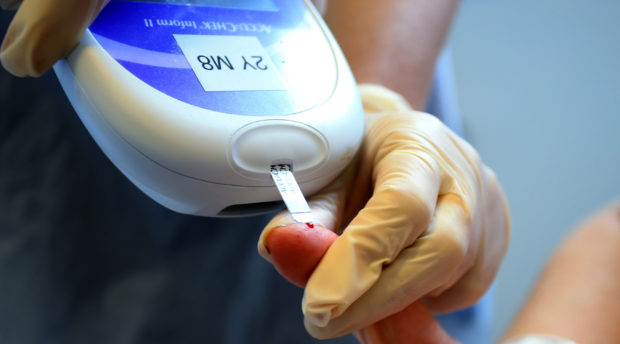Diabetic patients’ quality of life could be improved thanks to new research by Dundee University.
A study led by Dr Alison McNeilly from the university’s school of medicine has found antioxidants could help patients’ brain functions.
People with the condition can be susceptible to cognitive impairments as a result of low blood sugar levels.
Long-term decline in the brain, with everyday learning and memory tasks becoming harder and taking longer to complete, is a common consequence for patients who frequently experience low blood sugar levels when using insulin.
The findings, after experiments on mice, suggest stimulating antioxidant defences reduces these impairments. This raises the possibility of improving the lives of patients if the research can be transferred to humans.
Dr McNeilly will present her findings at the Society for Endocrinology’s annual conference in Glasgow this week.
She said: “Low blood sugar is an almost unavoidable consequence of insulin therapy. This work demonstrates that by improving the body’s own antioxidant defence system we can reverse some of the side effects associated with diabetes.”
Previous studies in mice have shown recurring episodes of low blood sugar lead to an accumulation of cell-damaging free radicals in the brain.
It is not yet known if this build-up directly effects brain function or if the body’s own antioxidant systems, which can remove free radicals, can be used to combat these changes.
In the study, Dr McNeilly and colleagues used insulin to induce repeated bouts of low blood sugar in a mice. In the experiment, one group of mice were also dosed with the vegetable-derived antioxidant sulforaphane.
Mice treated with sulforaphane had significantly improved cognitive ability in memory tasks.
The Dundee University team now hope to find out if boosting the body’s antioxidant system can minimise cognitive decline associated with low blood sugar in humans.
Dr McNeilly added: “The concentration of sulforaphane used in this study would not be attainable in a normal diet rich in vegetables.
“However, there are numerous highly potent compounds in clinical trials which may prevent cognitive impairments caused by free radicals to help diabetes patients.”





